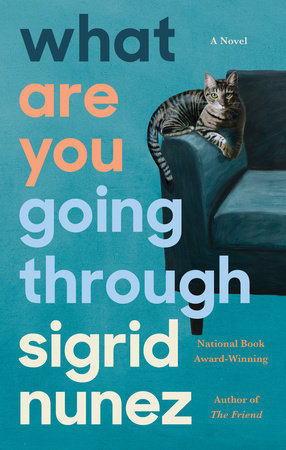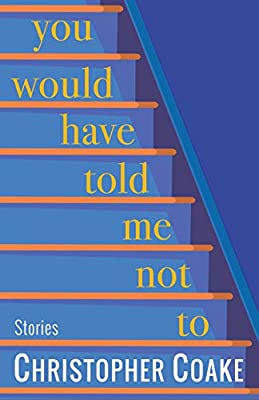"A man ought to read just as inclination leads him, for what he reads as a task will do him little good."—Samuel Johnson
| Reviews | Limericks | Six Words | Buy Nothing |
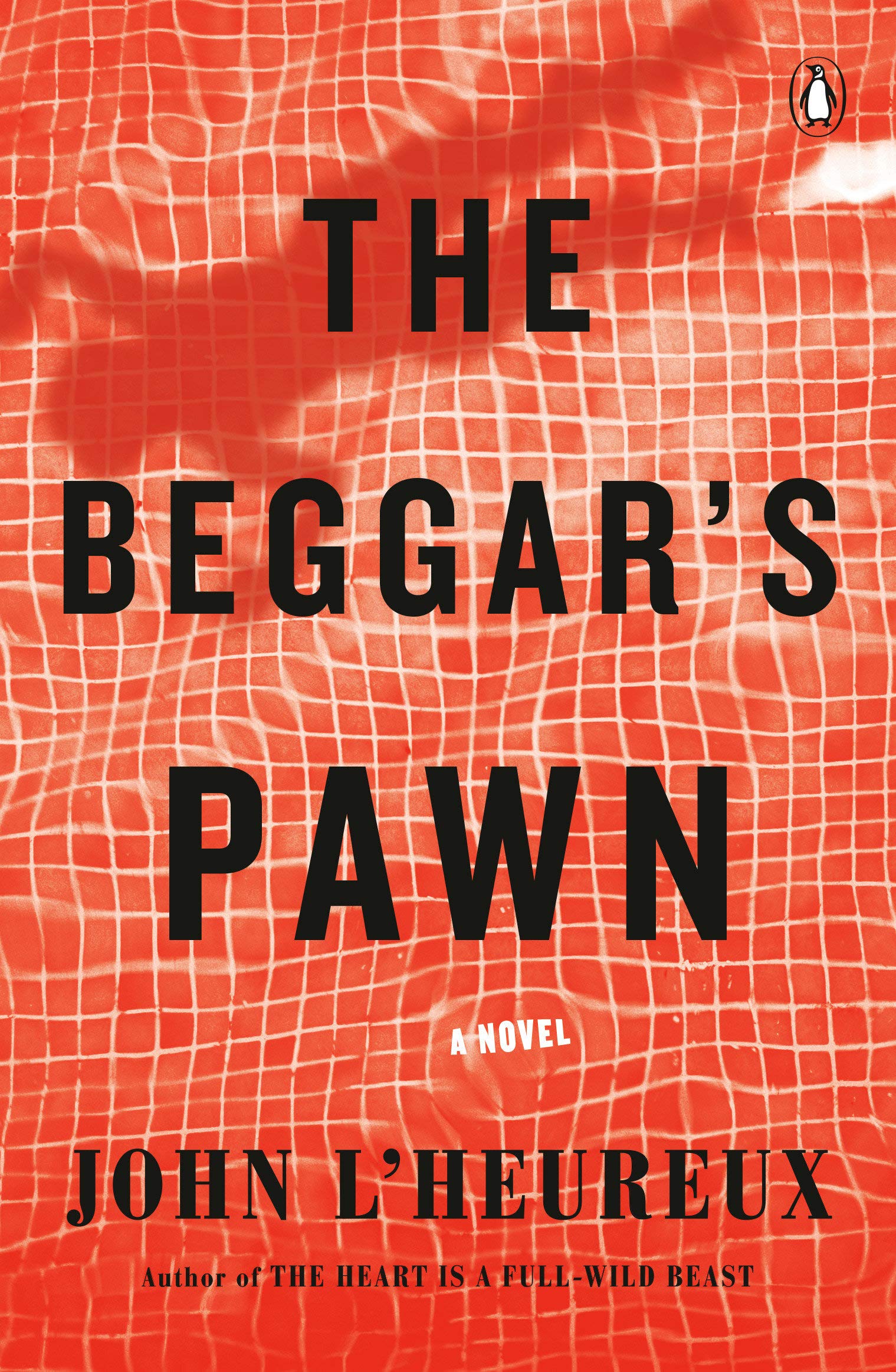 31 December 2020
31 December 2020
The Beggar's Pawn
John L'Heureux
This is L'Heureux's last book, published posthumously. It's about an academic couple and their adult children, and their very strange neighbor who ingratiates himself into their lives. The neighbor is a little too one-dimensional, but he serves to bring out the relationships among the family members. I'm sorry I didn't read L'Heureux while he was still alive, but I'm glad he left a large body of work behind.
Curiously, the book end's with an "editor's note," that is written in first-person and describes the writer's relationship with L'Heureux, but is not attributed to anyone at all.
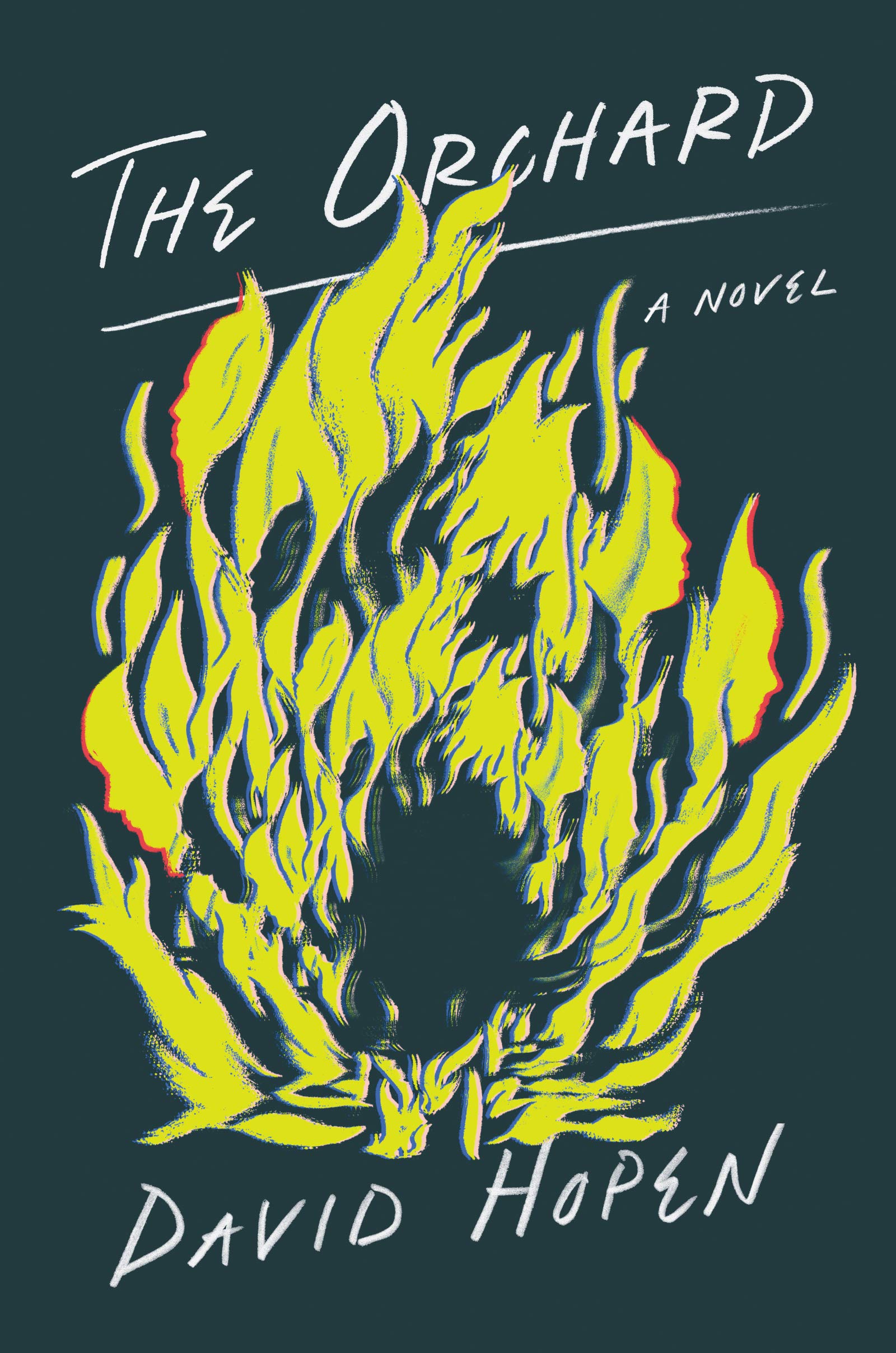 12 December 2020
12 December 2020
The Orchard
David Hopen
If you put Lord of the Flies, the Talmud, A Separate Peace, and Then Again, Maybe I Won't in a blender and set it to frappé, then poured the whole thing into a glass labeled The Secret History, you would have this book. A boy who grew up in an insular Orthodox Jewish community in Brooklyn moves to Florida for his senior year and falls in with the popular, partying crowd at his fancy new yeshiva high school, including their haunted, charismatic, and destructive leader. Much of the philosophy went over my head, but I loved that none of the many Hebrew terms were in distracting italics. On the other hand, I hated being asked to believe that teenagers can speak and behave with such preternatural confidence, and I'm not entirely sure what exactly happened at the end, just that it was bad. Still, it's the best book I read this year.
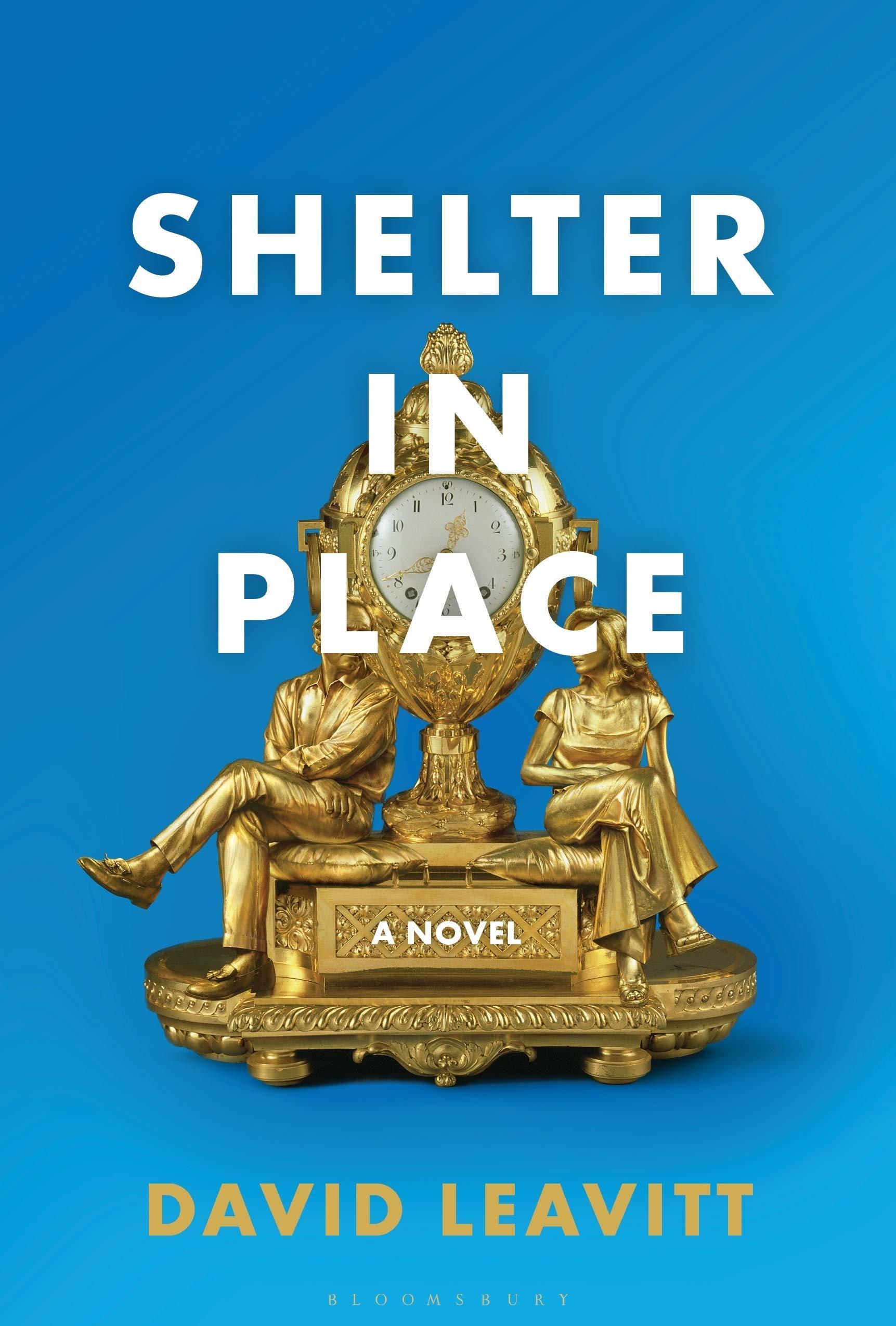 2 December 2020
2 December 2020
What Are You Going Through, Sigrid Nunez's novel about a woman who agrees to help a terminally ill friend end her life, is somber but not depressing. The narrator keeps the story more in the head than the heart, which doesn't make it unsatisfying. In fact, it would otherwise probably be too heavy to read, grappling as it does with all of the big issues: not only suicide but loneliness, sexism, aging, climate change, and even the prospect of a global pandemic. ♦♦♦ Although I did not read the middle of Christopher Coake's story collection, You Would Have Told Me Not To, I recommend it based on the first and last stories. Both are about recently divorced men and their regrets. The last story, almost a novella, follows a high school teacher's dramatic weight loss and the changes it brings (or doesn't) to his life. ♦♦♦ David Leavitt's latest novel, Shelter In Place, is a highly polished comedy of manners about wealthy New York liberals. The Trump panic already feels like something from another time, thank goodness, but these characters are still familiar.
More by Nunez: The Last of Her Kind, More by Leavitt: The Body of Jonah Boyd
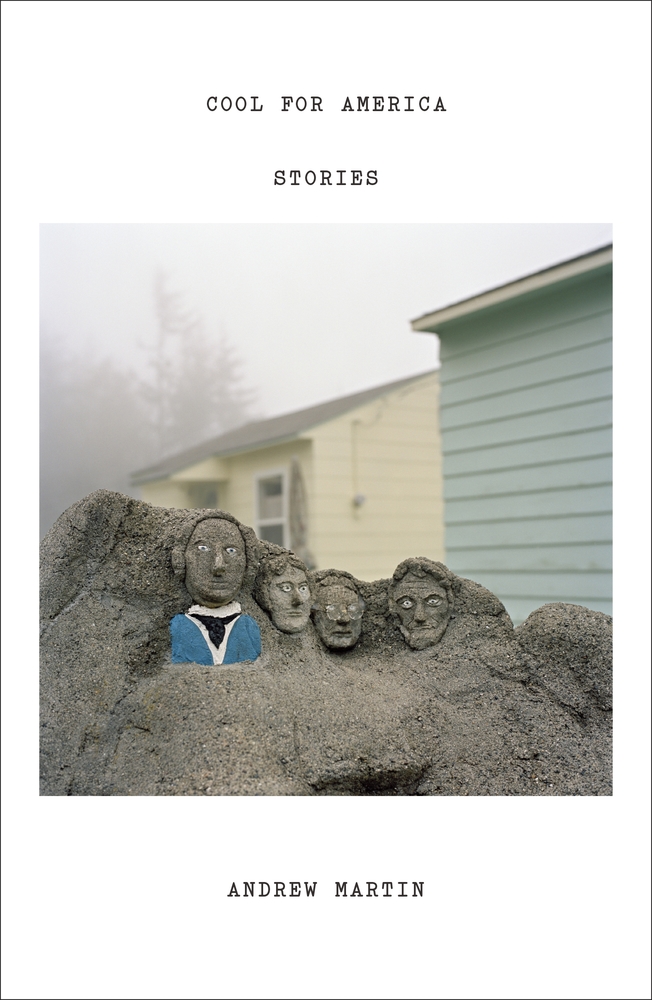
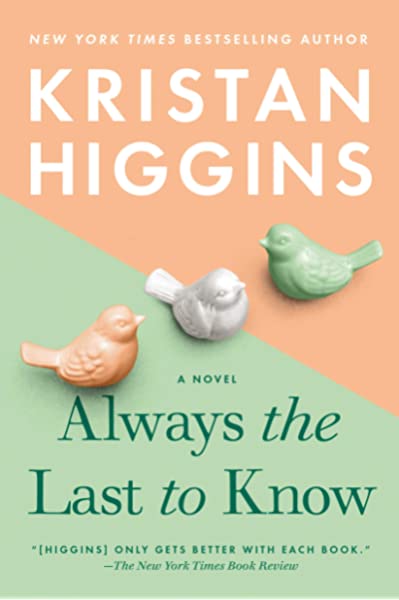
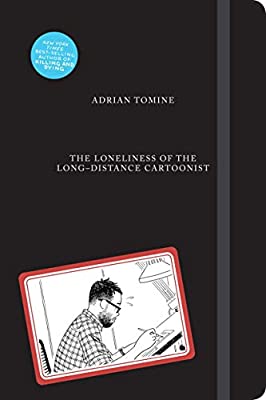
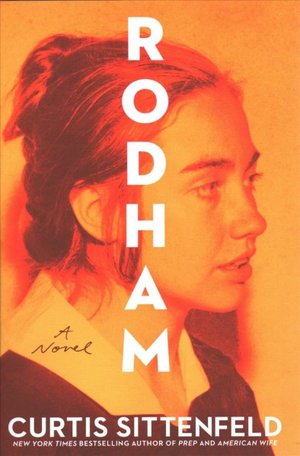 Andrew Martin is back with a story collection, Cool for America, that brings the same energy found in Early Work, and some of the same characters. If you like the banter of young people who know a great deal about literature but are barely able to dress and feed themselves, you'll enjoy this as much as I did. I see it as part of a new genre, not a campus novel but a "college-town novel" (mostly Missoula, in this case), of which After the Workshop would be another good example. Like many story collections, it sagged a bit in the middle, but I'm still looking forward to more in what will surely be a long career. ♦♦♦ Each of Higgins's books has been more substantial than her last. I welcomed how this one steered back to romance and away from her previous issue-focused work. The complexity is more satisfying than her earliest books, but I do miss their lightheartedness. ♦♦♦ Adrian Tomine's graphic memoir The Loneliness of the Long-Distance Cartoonist is a chronicle of all the slights he experienced as he built his career. I've taken kind of a dim view of Tomine ever since I heard him on NPR a few years back expressing snobbish disdain for the great Bob Seger, and this book did nothing to improve my opinion of him. Still, the crisp look of his work still makes him visually my favorite graphic artist. ♦♦♦ Rodham is Curtis Sittenfeld's alternate history of Hillary Clinton's life and the 2016 election. Instead of marrying Bill, she goes on to an independent career in politics, eventually running for president. All of the elements of the world we know are there, but the deck is shuffled and the cards dealt to different characters. And being a Sittenfeld novel, it's about a woman whose life, however publicly powerful, is marked by insightful introspection and exquisitely excruciating awkward moments.
Andrew Martin is back with a story collection, Cool for America, that brings the same energy found in Early Work, and some of the same characters. If you like the banter of young people who know a great deal about literature but are barely able to dress and feed themselves, you'll enjoy this as much as I did. I see it as part of a new genre, not a campus novel but a "college-town novel" (mostly Missoula, in this case), of which After the Workshop would be another good example. Like many story collections, it sagged a bit in the middle, but I'm still looking forward to more in what will surely be a long career. ♦♦♦ Each of Higgins's books has been more substantial than her last. I welcomed how this one steered back to romance and away from her previous issue-focused work. The complexity is more satisfying than her earliest books, but I do miss their lightheartedness. ♦♦♦ Adrian Tomine's graphic memoir The Loneliness of the Long-Distance Cartoonist is a chronicle of all the slights he experienced as he built his career. I've taken kind of a dim view of Tomine ever since I heard him on NPR a few years back expressing snobbish disdain for the great Bob Seger, and this book did nothing to improve my opinion of him. Still, the crisp look of his work still makes him visually my favorite graphic artist. ♦♦♦ Rodham is Curtis Sittenfeld's alternate history of Hillary Clinton's life and the 2016 election. Instead of marrying Bill, she goes on to an independent career in politics, eventually running for president. All of the elements of the world we know are there, but the deck is shuffled and the cards dealt to different characters. And being a Sittenfeld novel, it's about a woman whose life, however publicly powerful, is marked by insightful introspection and exquisitely excruciating awkward moments.
More Sittenfeld: Eligible
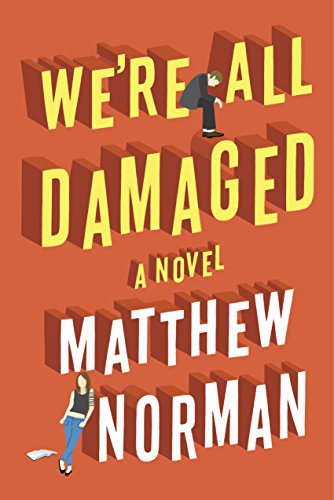
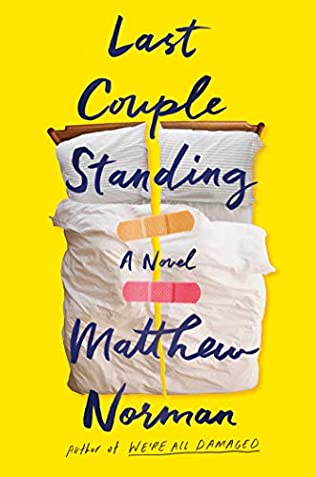 We're All Damaged
We're All Damaged
and
Last Couple Standing
Matthew Norman
We're All Damaged is about a guy who moves back to his hometown after his wife leaves him, to be with his dying grandfather. He gets mixed up with a young woman whose relationship to his grandfather is at first unclear, and has to contend with his mother's budding career as an anti-gay news personality. Last Couple Standing, just published this year, is about a couple whose friends are all divorcing, so they attempt an open marriage to try to forestall boredom that might threaten their own. Both novels have some interesting surprises, perfect pacing, and plenty of humor. I'm going back to read Norman's first book and looking forward to his next.
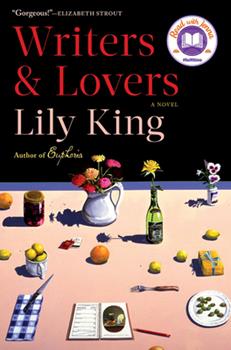
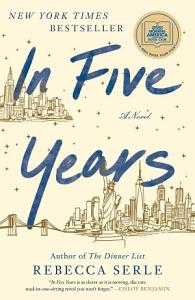
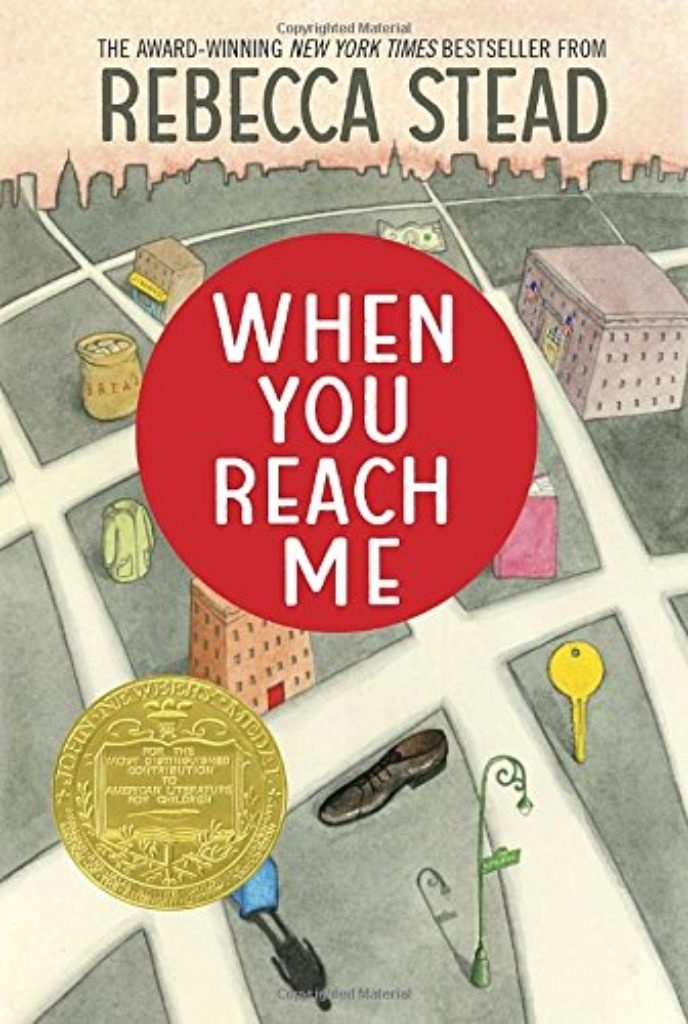
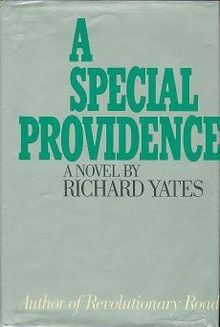 Writers and Lovers is much like the other two Lily King novels I have read: worth reading, but not memorable. The main character works is a Cambridge restaurant by night and writes by day in a rented potting shed, while juggling two lovers and grieving the sudden loss of her mother. ♦♦♦ Rebecca Serle's In Five Years seems like it's going to be a light time-travel romance, but goes in a different, equally satisfying, direction. It's a love story, but not the one you think it is. ♦♦♦ When You Reach Me by Rebecca Stead is young-adult fiction, something I generally stopped reading once I finished all the M.E. Kerr and Paul Zindel books in the public library's children's section and discovered John Updike on the adult side. This one is worthwhile. A time-travel story, set in the New York City of the late 1970s, it reminded me of the books I was reading in those days, the Constance C. Greenes and Edward Ormondroyds. ♦♦♦ A Special Providence is another solid Richard Yates novel. It has the feel of a couple of different novels fused together, one about a man's time in the army and the other about early life and relationship with his mother.
Writers and Lovers is much like the other two Lily King novels I have read: worth reading, but not memorable. The main character works is a Cambridge restaurant by night and writes by day in a rented potting shed, while juggling two lovers and grieving the sudden loss of her mother. ♦♦♦ Rebecca Serle's In Five Years seems like it's going to be a light time-travel romance, but goes in a different, equally satisfying, direction. It's a love story, but not the one you think it is. ♦♦♦ When You Reach Me by Rebecca Stead is young-adult fiction, something I generally stopped reading once I finished all the M.E. Kerr and Paul Zindel books in the public library's children's section and discovered John Updike on the adult side. This one is worthwhile. A time-travel story, set in the New York City of the late 1970s, it reminded me of the books I was reading in those days, the Constance C. Greenes and Edward Ormondroyds. ♦♦♦ A Special Providence is another solid Richard Yates novel. It has the feel of a couple of different novels fused together, one about a man's time in the army and the other about early life and relationship with his mother.
More Yates
11 September 2020
Twin 9/11 Novels
I hate a spoiler, so all I will say is that this past spring I read two novels in a row, both published in the previous nine weeks, and here is how I can describe either of them: It was written by an Emily G. and was about a twentysomething woman who moved to New York City from the Midwest around the turn of the millennium. She has a boyfriend she recently met who she's crazy about but who is bad for her. September 11 happens, she finds out that the boyfriend dies, then she learns that she's pregnant. She gets engaged to a different guy, named Matt, and has a child.
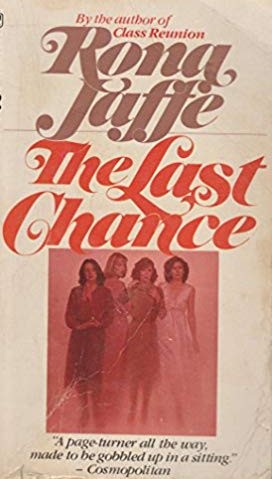 10 March 2020
10 March 2020
The Last Chance
Rona Jaffe
This is another variation of the time-honored Four Women archetype found in novels from Little Women to Sex and the City to Jaffe's own Class Reunion. Here, as elsewhere, the women fill more or less the usual four roles: one traditional, one sexual, one ambitious, one doomed. And here the doom is literal, as we know from the start that one woman will die by the end of the year, we just don't find out who until the end. There's a lot of overlap in the their stories (the range of paths available to women was narrower then) and the voices are largely indistinguishable, so I had to do a little flipping around to remember who was who, but it was worth the bother. Jaffe knew how to hook a reader. And if you have any love for New York City, nostalgia for the 1970s (though, as this book reminds us, 1970s NYC could be a scary place), or interest in women's lives and relationships, you'll want to give this one a chance.
More Jaffe: The Room-Mating Season
10 March 2020
Other People Are Just Stock Characters In Your Movie
I have been troubled by something I've seen in recent writing, something that I suspect has its roots in social media and the way it permits the dismissal of other people without experiencing them as fully human. I am disturbed by the use of the word "normie," which was popularized by the alt-right but I now see in wide use among progressives to mean people who aren't wrapped up in academia/politics in general and Twitter dialogue in particular. The implication is that people described this way aren't as enlightened, sophisticated, or informed as the speaker. The self-deprecating tone is bogus, in the same way that people call themselves "nerds" when it's clear it isn't themselves they are putting down at all. I was disappointed to see "normie" used this way in Antisocial, an otherwise thoughtful book. Similar is the use of "basic," also something I first noticed from the misogynist alt-right, now used, I guess, to mean a person who isn't as interesting as yourself. And then there is "rando," a name you call someone just because you don't know them. This sort of disturbing dismissal of others is something I felt throughout Jia Tolentino's Trick Mirror, particularly in her mocking of another woman in her yoga class. And I was taken aback by Lori Gottlieb's blithe discussion in Maybe You Should Talk to Someone of how revolting it would be to have sex with an 80-year-old. One can call this lack of compassion, but beyond that it's also lack of perception. Do you not see others as human like yourself? If so, where does that leave you as a writer?
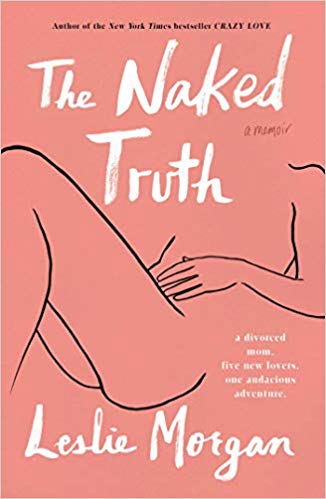 23 January 2020
23 January 2020
The Naked Truth
Leslie Morgan
She's been "boy-crazy since kindergarten," so after an ugly divorce from a husband who was never interested in her sexually her engine is revving. Not interested in getting married for the third time, she decides to "date like a man" and just enjoy sex. She sets the goal of finding five lovers in the next year; it helps that she embraces her MILF identity and is open to men in their twenties. She easily meets her goal, and declares her experiment a success. I have to admire her resilience and optimism: she had a lot of great sex, but every one of her boyfriends either ghosted her, turned out to have a girlfriend he neglected to mention, or, in the worst case, was a pathological narcissist with a mile-wide mean streak. A different writer would have made this a tragic tale. Morgan is a nimble storyteller and not shy about sharing details. On the down side, there's the usual "back on the dating scene after a long marriage" culture-shock jokes, which were always ageist and never that funny. Weirdly, she mistakes this :) or this ;) for a typo. That someone in her forties in 2016 who writes on a laptop for a living and has had a Twitter account since 2008 had never seen emoticons (or, as her friend calls them, "winky faces") is just impossible to believe. So what else isn't true here, what else is just phoned in?
"There was so much to read, for one thing, and so much fine health to be pulled down out of the young breathgiving air...I was rather literary in college—one year I wrote a series of very solemn and obvious editorials for the Yale News—and now I was going to bring back all such things into my life and become again that most limited of all specialists, the 'well-rounded man.' This isn't just an epigram—life is much more successfully looked at from a single window, after all."—F. Scott Fitzgerald, The Great Gatsby
Copyright © 1996–2026 So Much to Read
Contact: books at so much to read dot com
